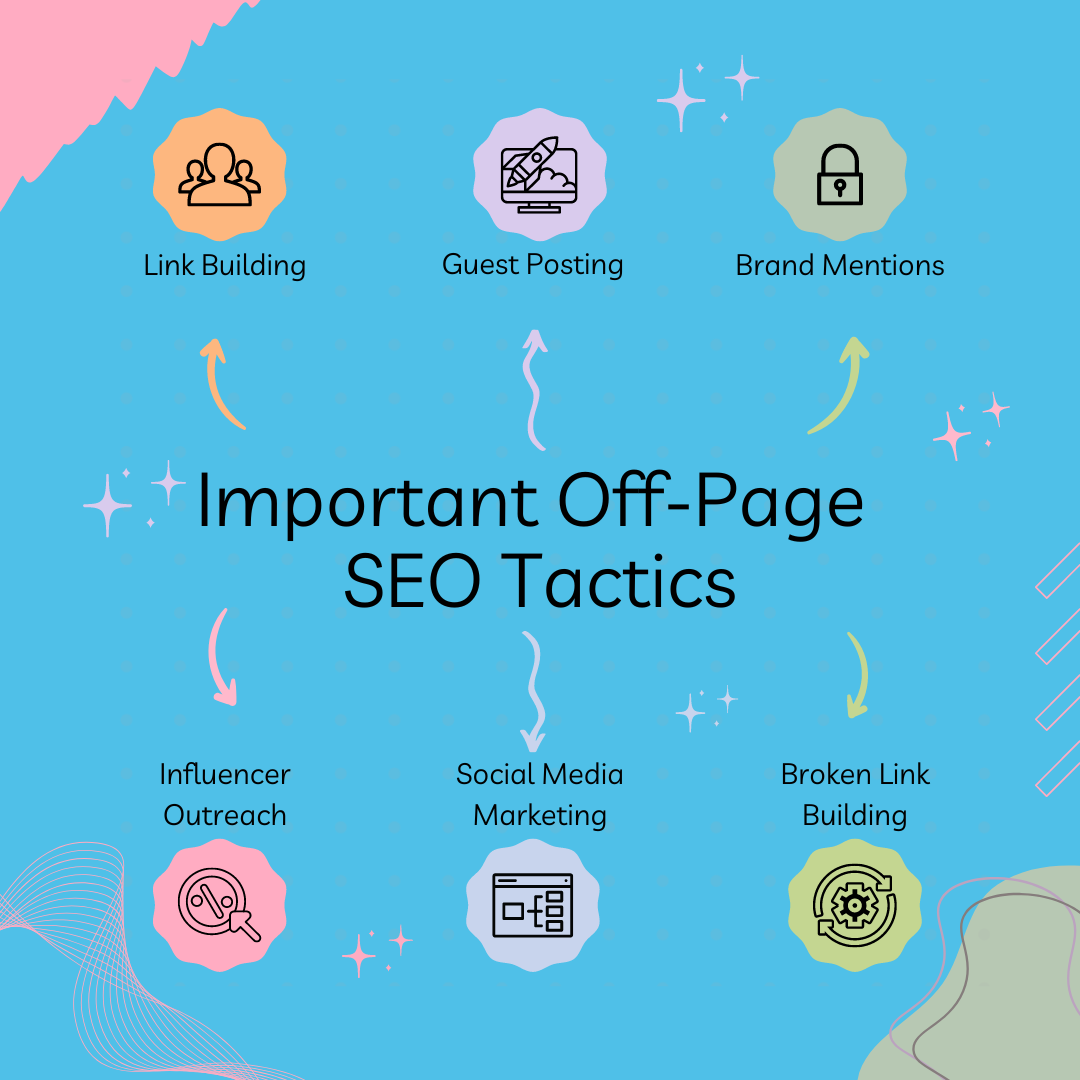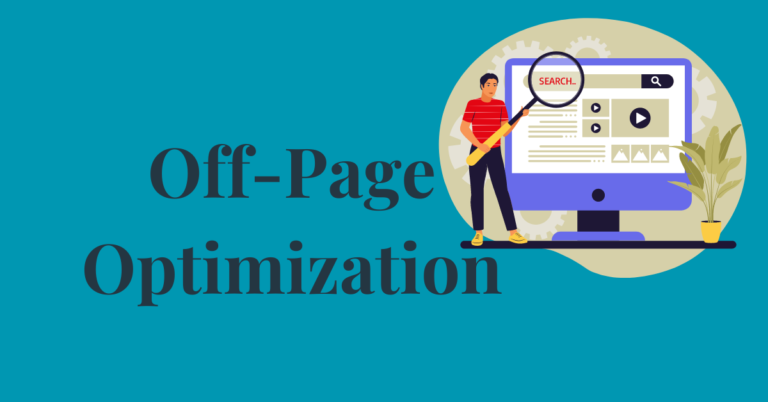What Is Off-Page SEO?
Off-page SEO refers to all the activities you do outside your website to improve its ranking on search engine result pages (SERPs). While on-page SEO focuses on optimizing the content, HTML code, and structure of your website, off-page SEO focuses on building your site’s reputation and authority across the web.
This process is all about convincing search engines like Google that your website is trustworthy, credible, and relevant. This is achieved primarily through link-building, social media marketing, and brand mentions.
Off-page SEO helps search engines understand how others perceive your site. If many high-authority websites link to your site or if your brand is discussed across social media and forums, search engines are likely to view your website as valuable and worthy of ranking higher.
Why Is Off-Page SEO Important?
Search engines, particularly Google, take into account hundreds of factors when determining how to rank a website. Off-page SEO plays a crucial role in this, as search engines don’t rely solely on what’s happening on your website. They also examine how your site is performing in the broader digital landscape.
Here’s why off-page SEO is important:
- Boosts Website Authority
Off-page SEO is largely about building domain authority. The higher your domain authority, the more likely your site will rank well in SERPs. Search engines consider backlinks from high-quality, authoritative websites as a signal that your site is credible and trustworthy. - Improves Rankings
Quality off-page SEO practices can result in higher rankings. When your site is linked to other websites or shared across platforms, search engines take this as a vote of confidence. The more “votes” you get, the higher you are likely to rank for relevant keywords. - Increases Organic Traffic
Better rankings mean more visibility, which ultimately leads to more organic traffic. When your website appears higher in search results, more users are likely to click on it, leading to increased traffic and potential leads or sales. - Enhances Brand Reputation
Off-page SEO not only drives traffic but also helps improve your brand’s reputation. If people are talking about your brand in a positive light or influential websites are linking to your content, it helps build trust among users. - Long-Term Impact
Unlike some on-page SEO tactics that may require continuous updates, successful off-page SEO strategies, such as high-quality backlinks, tend to have a long-lasting effect. A single quality backlink from a high-authority website can drive traffic for years to come.
Off-Page SEO Techniques

Now that we understand the importance of off-page SEO, let’s explore some of the most effective strategies to improve your site’s off-page performance.
Link Building
Link building is the cornerstone of off-page SEO. In essence, it’s the process of acquiring backlinks (links from other websites) that point to your website. Not all backlinks are created equal, though. Quality matters more than quantity. High-authority websites linking to your site carry more weight than a large number of low-quality backlinks.
There are some ways to build backlinks, including:
- Guest Posting: Writing articles for other blogs or websites in exchange for a backlink.
- Broken Link Building: Finding broken links on other websites and offering your content as a replacement.
- Resource Pages: Getting listed on curated resource pages relevant to your niche.
- Content Outreach: Reaching out to bloggers, influencers, and website owners to share and promote your content.
When building links, focus on obtaining links from authoritative, relevant sites. Links from spammy or low-quality sites can do more harm than good.
Social Media Marketing
While social media links don’t directly contribute to SEO rankings, a strong social media presence can indirectly boost your SEO efforts. Sharing your content across social media platforms increases its visibility and chances of earning backlinks.
Encourage users to share your content and engage with your brand. When content goes viral or gains traction, it gets shared across blogs, forums, and other websites, which can lead to natural backlinks and brand mentions.
Additionally, a robust social media presence signals to search engines that your brand is trustworthy and popular, which can positively impact your ranking.
Influencer Outreach
Influencers—individuals with a large following and authority in a particular niche—can play a significant role in off-page SEO. By collaborating with influencers, you can gain access to their audience and encourage them to share your content, which can result in valuable backlinks and brand mentions.
Influencer marketing can be done in various ways, such as:
- Asking influencers to review your product or service.
- Collaborating on a blog post, video, or podcast.
- Offering free products in exchange for a mention or backlink.
The key is to focus on influencers who have relevance to your industry, as their endorsement is more likely to result in high-quality backlinks and traffic.
Brand Mentions
Even if a website doesn’t link back to your site, a brand mention can still contribute to your off-page SEO efforts. When your brand is mentioned on authoritative sites, in forums, or on social media, it signals to search engines that your brand is credible and trustworthy.
You can monitor unlinked brand mentions using tools like Google Alerts or Ahrefs, and reach out to the website owners to request a backlink to your site.
Forum and Community Participation
Being active in online communities such as forums, Reddit, and niche-specific communities can help build your brand’s authority and trustworthiness. By offering valuable insights and information, you position yourself as an expert in your field, which can lead to natural backlinks and brand recognition.
While spamming forums with links won’t help your SEO, engaging with the community and offering thoughtful responses will naturally drive traffic and increase your online presence.
Common Off-Page SEO Mistakes to Avoid
While off-page SEO can significantly improve your website’s performance, some common mistakes can hurt your efforts. Here are a few to avoid:
- Low-Quality Backlinks: Avoid acquiring backlinks from spammy or irrelevant websites. Google’s algorithm dislikes sites that engage in manipulative link-building practices.
- Over-Optimization: Be careful not to over-optimize anchor text with exact-match keywords. A natural, diverse backlink profile is more favorable to search engines.
- Ignoring Social Signals: While social media doesn’t directly influence SEO rankings, ignoring it can result in missed opportunities to build brand awareness and gain valuable traffic.
- Neglecting Local SEO: For businesses targeting local customers, neglecting local citations, reviews, and local backlinks can significantly affect your search visibility.
Conclusion
Off-page SEO is a crucial aspect of a successful digital marketing strategy. It extends beyond your website and involves building authority, credibility, and trust across the web. By leveraging strategies like link building, social media marketing, and influencer outreach, you can improve your site’s ranking, drive more organic traffic, and enhance your brand’s online reputation.
As a beginner, focus on building high-quality backlinks, engaging with your audience through social media, and fostering relationships with influencers and other industry leaders. With time and effort, your off-page SEO efforts will lead to long-term gains in your search engine rankings and overall online presence.
To know details of off-page SEO, read the Backlinko article.
Some Important FAQs And Answers
- Is Off-Page SEO Hard?
Off-page SEO can be challenging, especially for beginners, as it requires consistent effort, strategy, and relationship building. However, with practice and the right tools, it becomes manageable. - How Long Does Off-Page SEO Take?
Results from off-page SEO can typically take 3 to 6 months to show, but significant improvements may take longer, depending on factors like competition and the quality of your strategies. - How Do You Improve Your Off-Page SEO?
To enhance off-page SEO, focus on building high-quality backlinks, engaging on social media, monitoring brand mentions, collaborating with influencers, and participating in relevant online communities. - Can Off-Page SEO Improve Our Ranking?
Yes, off-page SEO can significantly improve your website’s ranking by increasing authority and trustworthiness through backlinks and positive brand mentions. - What Is Better, On-Page or Off-Page SEO?
Both on-page and off-page SEO are essential. On-page optimizes your website’s content and structure, while off-page builds authority. A balanced approach is crucial for optimal SEO performance.
